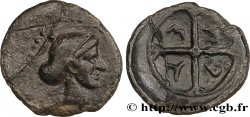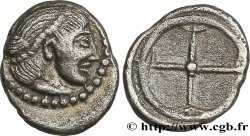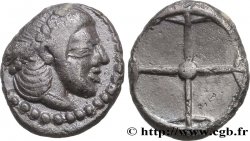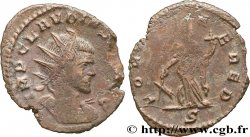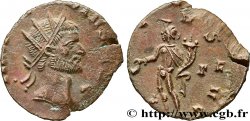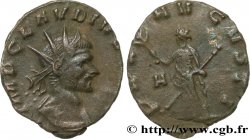正面
正面的文字 ANÉPIGRAPHE.
正面的说明书 Bige au pas à droite, conduit par un aurige tenant les rênes et le kentron ; le bige est couronné par Niké volant à droite.
背面
背面的说明书 Tête d'Aréthuse à droite, les cheveux relevés et retenus par un diadème de perles, entourée de quatre dauphins.
背面铭文 SURAK-OSI-ON
背面的翻译 (de Syracuse).
历史细节
SICILY - SYRACUSE
(5th century BC)
Hieronymus, tyranus of Syracuse
The government of Syracuse, founded in 733 BC by Corinthian settlers, was ensured from 485 BC by Gelon, tyrant of Gela since 491 BC. He had won a victory at the Olympic Games of 488 BC (chariot race) and recalled this victory by representing it on the obverse of the coinage of Syracuse while the reverse was occupied by the head of Arethusa. This nymph, in mythology, resided in the island of Ortygia, opposite the city of Syracuse, in the form of a fountain of fresh water, (Virgil, Eclog. IV.1, X.1). Alpheus, a satyr, representing a river-god in the Peloponnese, near Phylace in Arcadia, had pursued Arethusa. At her request, Artemis transformed her into a river and only the sea allowed the nymph to escape the satyr. This legend made it possible to explain a hydro-geographical phenomenon: an underground river passes under the sea to emerge in the island of Ortygia. In 480 BC, the Carthaginians invaded Sicily but were defeated by Gelon at Himera. In 478, Gelon died and his nephew Hieron succeeded him.









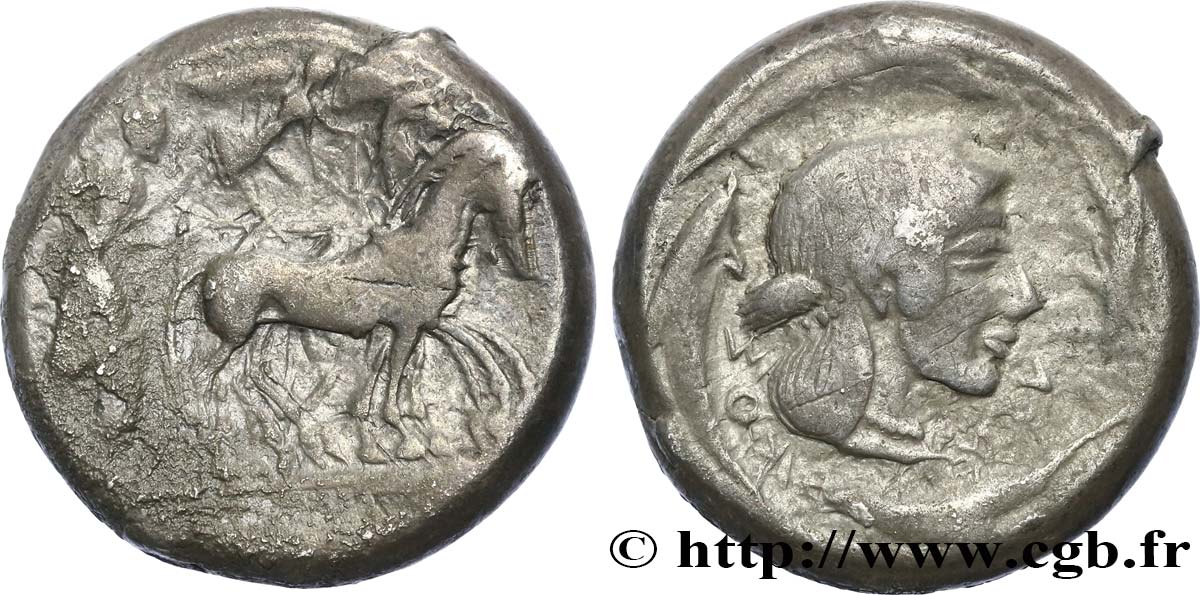
 对产品描述纠错
对产品描述纠错 打印
打印 分享我的选择
分享我的选择 提问
提问 Consign / sell
Consign / sell
 产品介绍
产品介绍